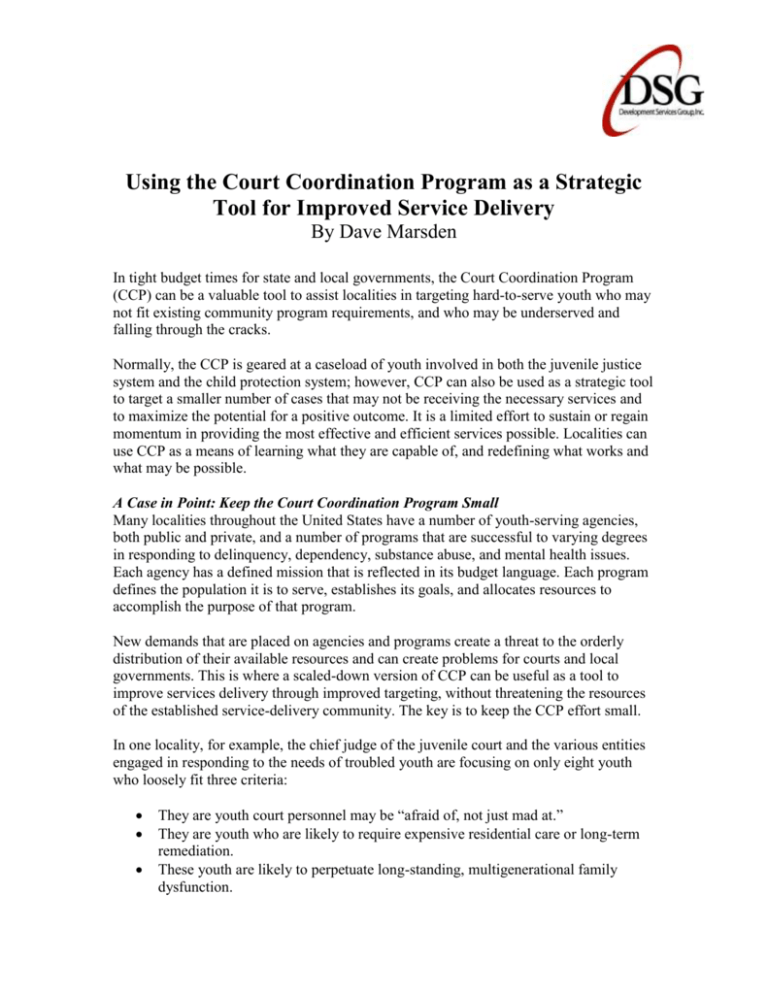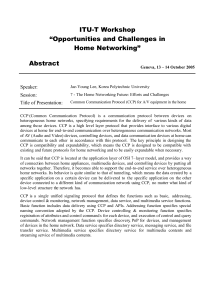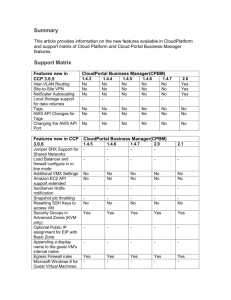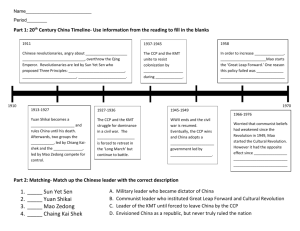CCP as a Tool - Development Services Group
advertisement

Using the Court Coordination Program as a Strategic Tool for Improved Service Delivery By Dave Marsden In tight budget times for state and local governments, the Court Coordination Program (CCP) can be a valuable tool to assist localities in targeting hard-to-serve youth who may not fit existing community program requirements, and who may be underserved and falling through the cracks. Normally, the CCP is geared at a caseload of youth involved in both the juvenile justice system and the child protection system; however, CCP can also be used as a strategic tool to target a smaller number of cases that may not be receiving the necessary services and to maximize the potential for a positive outcome. It is a limited effort to sustain or regain momentum in providing the most effective and efficient services possible. Localities can use CCP as a means of learning what they are capable of, and redefining what works and what may be possible. A Case in Point: Keep the Court Coordination Program Small Many localities throughout the United States have a number of youth-serving agencies, both public and private, and a number of programs that are successful to varying degrees in responding to delinquency, dependency, substance abuse, and mental health issues. Each agency has a defined mission that is reflected in its budget language. Each program defines the population it is to serve, establishes its goals, and allocates resources to accomplish the purpose of that program. New demands that are placed on agencies and programs create a threat to the orderly distribution of their available resources and can create problems for courts and local governments. This is where a scaled-down version of CCP can be useful as a tool to improve services delivery through improved targeting, without threatening the resources of the established service-delivery community. The key is to keep the CCP effort small. In one locality, for example, the chief judge of the juvenile court and the various entities engaged in responding to the needs of troubled youth are focusing on only eight youth who loosely fit three criteria: They are youth court personnel may be “afraid of, not just mad at.” They are youth who are likely to require expensive residential care or long-term remediation. These youth are likely to perpetuate long-standing, multigenerational family dysfunction. This locality is exploring the possibility of having the judge appoint a part-time court coordinator from existing case-management resources within the community. The designated coordinator will assist the judge in responding to this limited number of cases, and each agency or program head has agreed to provide whatever services are required through a specialized individual plan for each youth. Though there will be few conditions for acceptance into this specialized caseload, all assignments to the program will ultimately reside with the discretion of the judge. In this locality, CCP proved an ideal solution to what was once viewed as less-than-ideal circumstances. As one person involved with the program explained, “[For] these few cases, we can do whatever is necessary without reducing resources designed to accomplish our original mission.” Indeed, with the number of cases kept low, service providers will find that their organizational resources are no longer threatened when new demands—or cases that cannot be easily resolved through the regular court system— come through the docket. More importantly, implementing CCP means that hard-to-serve youth—who previously would have slipped through the cracks of the juvenile justice system and who would potentially have continued their interaction with the criminal justice system well into adulthood—instead receive targeted services that may help turn their life around. For more info on CCP, or to request Training and Technical Assistance, please contact CCP Project Director, Dave Marsden at Development Services Group, Inc 7315 Wisconsin Avenue, Suite 800 East Bethesda, Maryland 20814 Phone: 301-951-0056 dmarsden@dsgonline.com www.dsgonline.com











